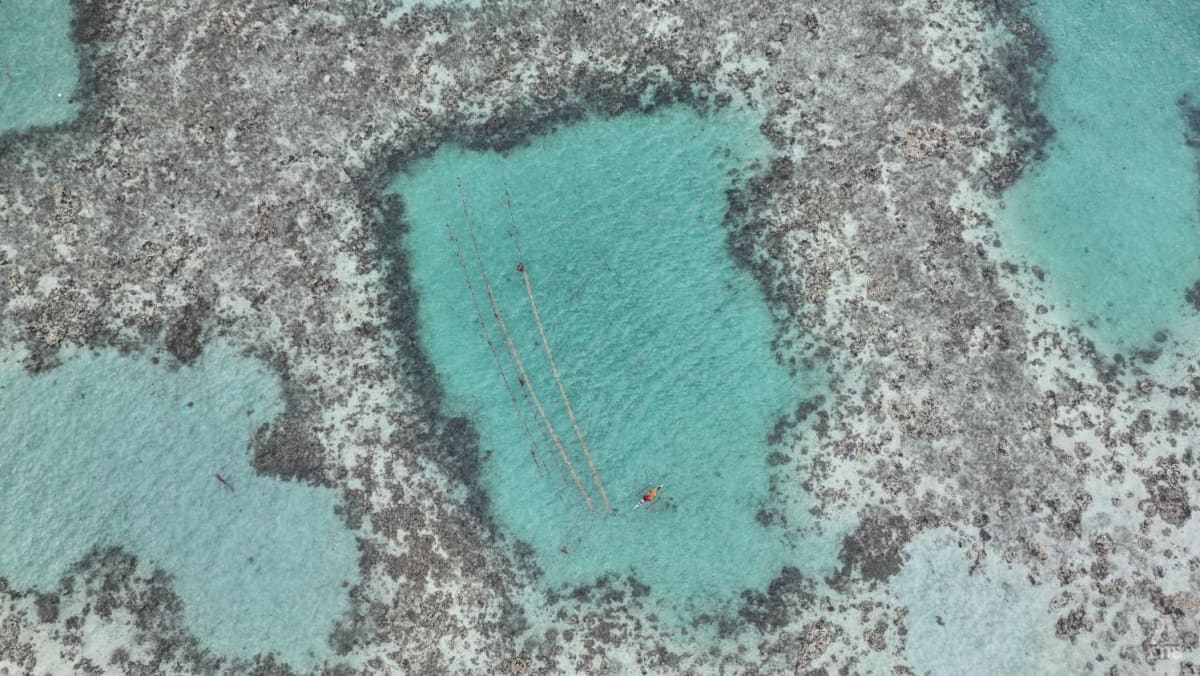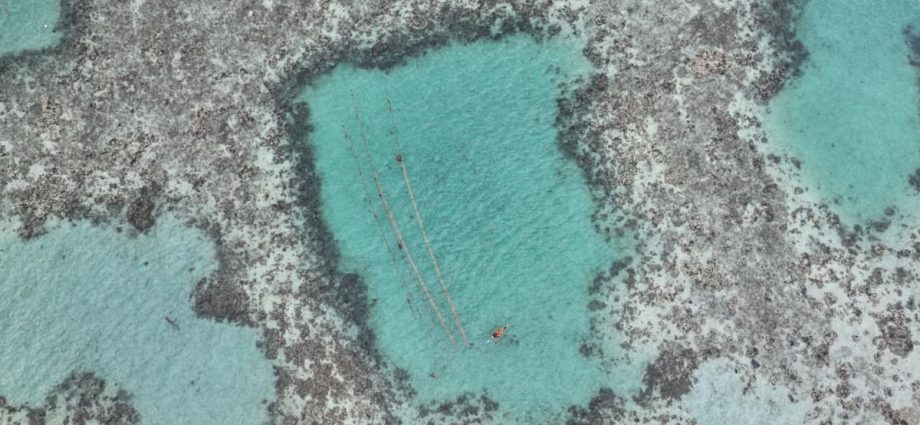
Amid rising climate impacts, the Sulubaai foundation is trying to bridge the gap between traditional knowledge and scientific research and equip locals in vulnerable island communities with the tools they need to adapt to a fast-changing planet.
The foundation has already helped establish four MPAs in the local region of Shark Fin Bay. Its co-founder and president, Frédéric Tardieu, has ambitions to create 10 MPAs by 2025.
The interventions are small but necessary and scalable, Tardieu says. At night, he watches the horizon crowded with lights “like a city” from international fishing trawlers decimating Palawan’s fish stocks. Locals are facing a bleak future, without help.
“At the beginning when we realised the situation, we were really angry. The human is a machine. The human has the power to destroy one hectare in one second. But humans also have the power to help nature and the result is incredible,” he said.
“I think Palawan is one of the last wild parts of the world. My dream is to contribute to the preservation of this part of the Philippines.”
Sulubaai’s base, a private, rehabilitated island – Pangatalan – has become an incubator for new science and innovative ocean researchers. Education is a central mission too.
Multiple projects run simultaneously – artificial reefs have been installed and are monitored to speed up coral reef recovery times, state-of-art photogrammetry creates three-dimensional maps of the reef landscape and bio-acoustic technology lets researchers better understand the complexity of reef sounds.

